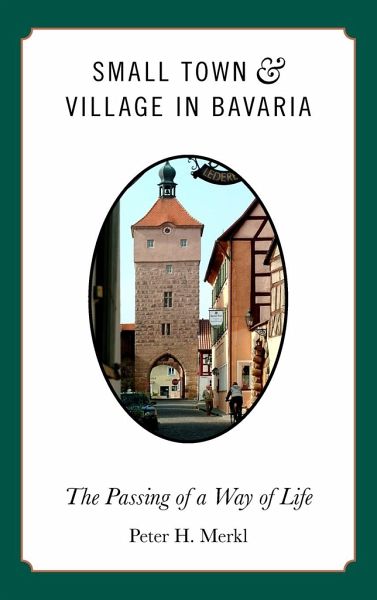
Small Town and Village in Bavaria
The Passing of a Way of Life

PAYBACK Punkte
66 °P sammeln!
At the center of this investigation is the great modernization effort of a West German state, Bavaria, in the 1970s and 1980s, by means of a reform of the smaller units of local government. The reforms were meant to abolish all autonomous local governments serving populations of fewer than 3,000, thereby reducing the number of local governments in Bavaria from more than 7,000 to less than 2,000. Based on interviews, surveys, and statistical research, this study chronicles fifteen communities and their challenges, developments, and social changes from post-1945 up to the present. While this boo...
At the center of this investigation is the great modernization effort of a West German state, Bavaria, in the 1970s and 1980s, by means of a reform of the smaller units of local government. The reforms were meant to abolish all autonomous local governments serving populations of fewer than 3,000, thereby reducing the number of local governments in Bavaria from more than 7,000 to less than 2,000. Based on interviews, surveys, and statistical research, this study chronicles fifteen communities and their challenges, developments, and social changes from post-1945 up to the present. While this book explores the decline of the iconic village community, it also reveals the survival of medieval towns in a contemporary world, and despite the modern desire for comprehensive and well-integrated services, there remains a seemingly perennial appeal of small town and village life.













